Four Irish war heroes have been honoured with newly unveiled plaques during Armistice Day commemorations in Dublin.
The memorials in Glasnevin cemetery commemorate Frederick Edwards of the Middlesex Regiment and John Vincent Holland of the Leinster Regiment.
Thomas Hughes of the Connaught Rangers and Martin O'Meara of the Australian Imperial Force were also remembered for their efforts in the First World War.
All four were awarded the Victoria Cross, Britain's highest military award for gallantry in the face of the enemy.
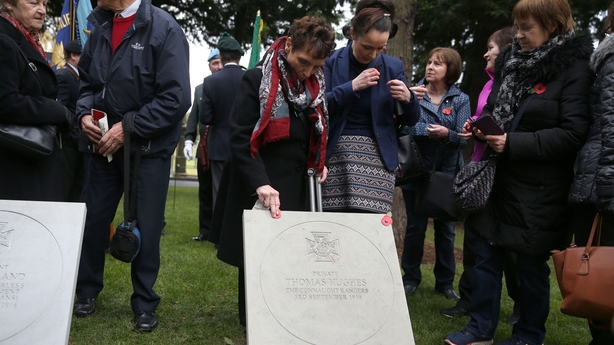
We need your consent to load this rte-player contentWe use rte-player to manage extra content that can set cookies on your device and collect data about your activity. Please review their details and accept them to load the content.Manage Preferences
Minister for Public Expenditure and Reform Paschal Donohoe led dignitaries, including several ambassadors to Ireland, in a wreath-laying ceremony at the cemetery's Cross of Sacrifice, in memory of the Irish men and women who died in the war.
"The sacrifices made, and the bravery shown, by them is remembered with pride and admiration," he said.
"Hearing the stories of those whose plaques are being unveiled also brings real life to proceedings and gives us a sense, and an understanding, of the courageousness and selflessness of those we commemorate here."
In Belfast, up to 1,000 people gathered to remember the war dead.
A two-minute silence was held during a short ceremony at the Garden of Remembrance in the grounds of the City Hall.
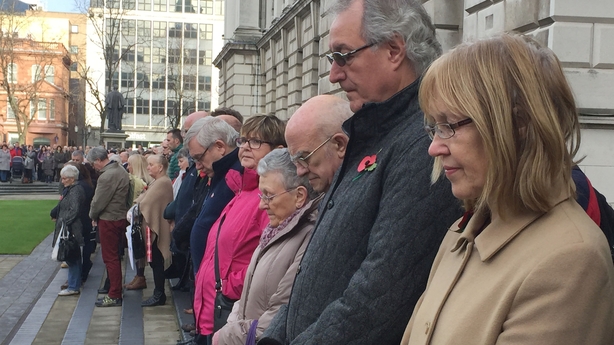
Democratic Unionist Lord Mayor Brian Kingston and Sinn Féin Deputy Lord Mayor Mary Ellen Campbell were among those who took part in the low-key event.
Mr Kingston described the turnout as impressive.
He said: "It just shows that people do have that appreciation and to show their recognition of all who served in two world wars and subsequent conflicts, and in particular those who made the ultimate sacrifice in upholding the freedom and democracies that we enjoy today.
"I was very impressed by the turnout that we had for the simple ceremony."
Similar ceremonies were held across NI, with First Minister Arlene Foster among those who paused to reflect at the war memorial in Enniskillen.
In 2013, Sinn Féin's Máirtín Ó Muilleoir made history as the first republican Lord Mayor to participate in an Armistice Day event at the Belfast cenotaph.
Previously, November's remembrance events in Northern Ireland were boycotted due to the association with the British military.
Commemorations were also held around the world to pay respect to those killed in the 1914-18 war.
In Britain people observed two minutes' silence at 11am in the annual act of remembrance which marks the time the guns fell silent on the Western front on 11 November 1918.
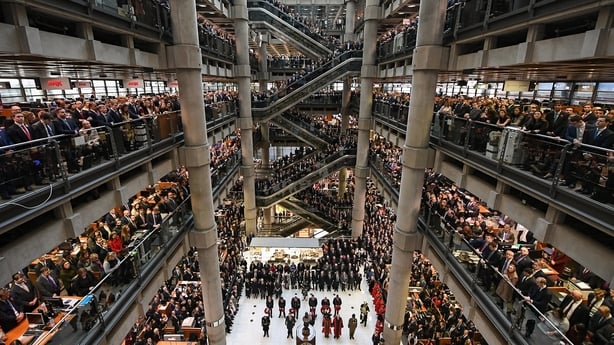
In Trafalgar Square in central London, traffic came to a halt at one of the capital's busiest tourist sites and crowds were invited to put poppy petals in the square's famous fountains.
Prince Harry, who served with the British military on two tours of duty in Afghanistan, led commemorations at a service at the Armed Forces Memorial at the National Memorial Arboretum in central England.
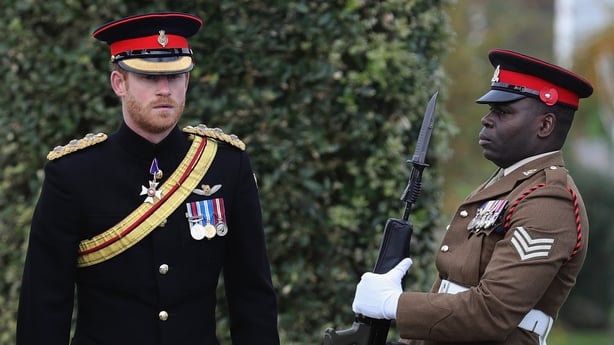
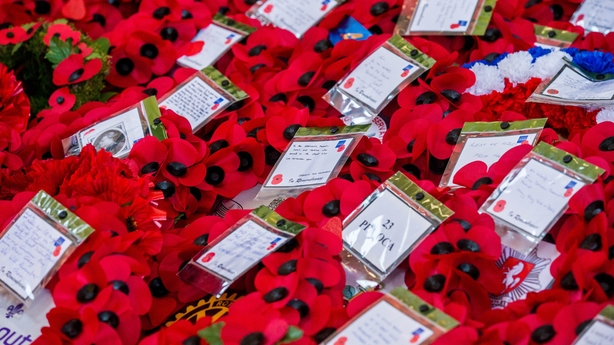
Armistice Day is followed by Remembrance Sunday on 13 November.
French President Francois Hollande laid a wreath under the Arc de Triomphe during particularly solemn tributes in Paris which came roughly a year after 130 people were killed when gunmen and suicide bombers attacked the city's Stade de France sports stadium, cafes and the Bataclan concert venue.
"November 11 marks the memory of the First World War and of a rising wave of nationalism that could not be contained. We must continue to remember it," Mr Hollande said.
Australians were encouraged to do more for returning soldiers with mental illness, during Canberra's annual Armistice Day ceremony.
Soldiers often bring home the scars of war and more can be done for them, Jeff Kennett, the chairman of mental health charity Beyond Blue told the hundreds attending the function, Prime Minister Malcolm Turnbull among them.
"They carry with them the excess baggage of fear, stress, anger and nightmares, which, if not addressed, can lead to anxiety, depression and, sadly, even suicide," Mr Kennett said in his commemorative address.
A minute's silence was observed at the ceremony to mark 98 years since the signing of the armistice and 75 years since the opening of the Australian War Memorial.

